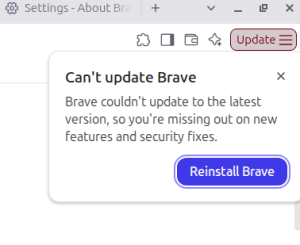Sanctions Force OneWeb to Find Alternative Launch Providers
Since Russia’s invasion of Ukraine started, most of Europe and the United States slapped sanctions on Russia. This forced some space operations to scramble to find alternatives to Russia’s rockets to launch their hardware.
The ESA put SpaceX, as well as Indian and Japanese launch providers, on its shortlist of backups to launch medium-sized payloads. It does have the Ariane 5 rocket that it uses for heavy payloads. The Ariane 6 ran into delays.
The ESA leadership has discussed the development of its own crew-rated launch vehicle, as seen in the below video. However, it still relies on NASA and Roscosmos for transport of its astronauts to the International Space Station.
However, like NASA, the ESA likes having multiple launch providers to choose from and tapped SpaceX to launch the Hera mission. Hera will follow up with the DART mission to observe the results of a small spacecraft’s impact on an asteroid. SpaceX will also launch the Euclid Space Telescope for the ESA.
Roscosmos, of course, tried to pretend that it was in control of the situation, saying, “In response to EU sanctions against our enterprises, Roscosmos is suspending cooperation with European partners in organizing space launches.”
Private Organizations Impacted Too
OneWeb was one private organization that got caught in the middle of the current dispute with Russia. It had to scuttle a deal with the Russians to launch its Internet-providing satellites. While shopping around for new launch providers, it inked a deal with SpaceX to launch some of its satellites.
SpaceX owns the competing Starlink and has gotten into the occasional spat with other satellite Internet service providers, sometimes with regulators and judges acting as referees. SpaceX CEO Elon Musk occasionally had sharp words with competitors who tried to use regulatory complaints to slow down Starlink’s development so they could catch up.
However, SpaceX pulled on its big boy pants for this one and promised to treat OneWeb like any other customer.
Earlier today (October 22, 2022), OneWeb launched 36 satellites on the Indian GSLV Mark III rocket. The GSLV Mark III is the Indian Space Research Organization’s (ISRO) most powerful rocket. According to the ISRO, the GSLV Mark III is capable of launching 4,000 kilograms into Geosynchronous Transfer Orbits (GTO) or 8,000 kilograms into Low Earth Orbit (LEO). Like Starlink, OneWeb satellites typically reside in in LEO.
The satellites were launched from the Satish Dhawan Space Centre in Sriharikota at 6:37 pm GMT. The launch happily coincided with India’s Festival of Lights.
“Happy Diwali to all of you, so we’ve started the celebration already,” ISRO Chairman S. Somanath said once the satellites launched into the correct orbit.
This launch represents a short three-month turnaround between the time the deal between OneWeb and the ISRO was signed and the actual launch of the satellites.
“This was a demand given to us by the chairman of ISRO to execute this mission in the very short time of three months,” said ISRO mission director Thaddeus Basker V.
OneWeb has 462 satellites in orbit now that the latest launch of a batch of satellites has gone off. 426 of those satellites went up on a Russian Soyuz rocket. However, the Soyuz hasn’t launched any OneWeb satellites since February.
OneWeb Plans Merger With Eutelsat
While OneWeb dealt with suddenly losing access to Russian rockets, it has also been in talks with Eutelsat for a possible merger. The two companies signed a Memorandum of Understanding to combine OneWeb’s satellites in LEO with Eutelsat’s geostationary constellation. The deal may still be pending some finalization proceedings like gaining regulatory approval for the merger.
OneWeb previously filed for bankruptcy in March 2020 and was bought out of bankruptcy by a conglomerate that included England’s sovereign fund. Eutelsat got in on the act by buying a quarter of the shares in April 2021. This new merger deal between OneWeb and Eutelsat will preserve England’s priority vote.
The bankruptcy could be taken as proof of how difficult and expensive it is to build a satellite Internet service from scratch. Elon Musk may not have been exaggerating by much when he mentioned that it costs $20 million a month just to keep the Internet up and running in a war zone with at least one combatant trying to hack or jam Starlink. (Good cybersecurity experts are expensive, apparently.)
The deal was interpreted as positioning OneWeb and Eutelsat to better compete with Starlink, which has been on a tear with launching premium mobile Internet options for boats, RVs, and airplanes – and even piloting a program to provide Internet access in Antarctica!





